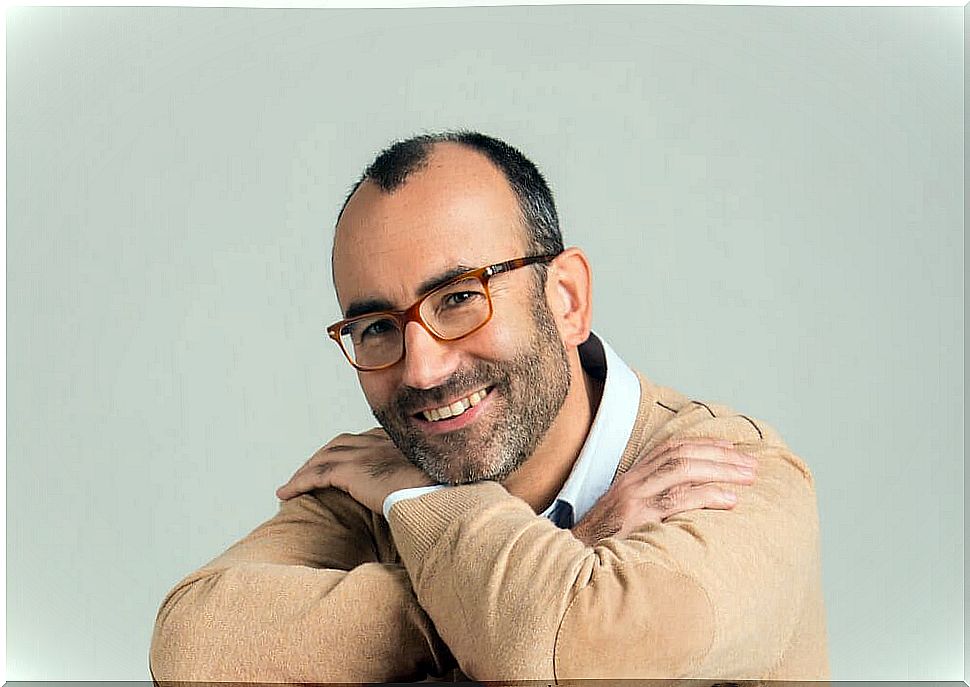Interview With Rafael Santandreu: “If You Control Your Thinking, You Control Your Emotions “

Any interview with Rafael Santandreu is an exercise in learning and discovery. In his latest book, Nothing is so Terrible: The Philosophy of the Strongest and Happiest offers us a practical manual for personal transformation and self-therapy. It is a work as complete as it is original to acquire valuable strategies based on cognitive psychology.
He is the author of books as well known to the public as The art of not making life bitter or The glasses of happiness. Santandreu stands out for his ability to make us understand the origin of our vital dissatisfactions, our unhappiness and the way our thoughts shape reality.
Interview with Rafael Santandreu
In our interview with Rafael Santandreu we delved into the importance of attending to the way in which we interpret the things that happen to us, including the most adverse.
As a psychologist, trainer, disseminator and therapist specialized in strategic brief therapy, Rafael Santandreu is that figure of reference who invites us to question ourselves. Thanks to him, we have made our terms such as terribilitis or necesititis , ideas that force us to look within ourselves to understand how we can limit our human potential.
Likewise, Santandreu gives us in his latest book interesting philosophical approaches to show us how the basis of happiness and positive psychology is also nourished by our classics.
The approach that he proposes to us in Nothing is so terrible responds once again to what he has accustomed us to: an original and innovative lesson to allow us to grow. It is a stimulus to awaken our inner joy, a journey that is undoubtedly always worth taking with him.
The cognitive psychology that you practice, is it based on modifying the internal dialogue?
That’s it. Notice that Epictetus, the first century philosopher, said: “We are not affected by what happens to us, but what we tell ourselves about what happens to us.” This means that you don’t get depressed because your girlfriend left you. You get depressed because you say to yourself: “I’m alone! I will never be happy again! I absolutely need it! “
In reality, most adversities should affect us very little, but since we activate a very negative internal dialogue, they cause us anxiety or depression.

Do the strongest and happiest people have a special internal dialogue?
That’s how it is. They never terrify. That is, they consider that there are adversities in life and they annoy them a little, but not so much as to prevent their happiness. They are convinced of it. But there are great adversities such as having cancer or losing a family member …
Can we all learn to be like this?
I assure you that if you acquire the personal philosophy of people like Stephen Hawking, your emotional world will change: you will no longer be affected by small adversities and you will have a lot of mental space to enjoy life. It’s all in the internal dialogue, in your beliefs about life.
What beliefs make up this new philosophy of life?
One of the main principles is to fight “needitis”, the belief that you need many things to be well. The truth is that we only need water and food for the day.
Everything else is accessory and expendable: having a partner, having a job, for example, is not important for happiness. The only essential thing is not to complain and appreciate what you have.
And health? That we do need to be serene and well
No way! Health is the first thing we lose as we get older. Sticking to health is absurd. And I assure you that we can be happy even with a serious illness. You have the example of Stephen Hawking and many others. Once again, what counts is what you tell yourself: whether or not you terrify.
Many people get depressed at the death of a loved one … But I assure you that depression is the product of their internal dialogue about death. I believe that death is good and even beautiful. Why? Because all natural facts are good and necessary. My death and that of my loved ones is a beneficial event.
Do you think that cognitive psychology has a “correct” way of thinking in the face of any adversity?
Yes. My books, for example, are a collection of philosophical principles that will convince you that you can be happy in the face of any adversity. You will find many arguments that, together, will lead you to say: “There is nothing that can make me unhappy!”
In fact, Epictetus, the philosopher you mentioned, was a slave …
Exactly: he was born a slave! His parents already were and he was sold at birth. His master, Epaphroditus, took him to Rome. Despite that, he was happy. He said to himself: “As long as I can do valuable things for myself and for others, I will be happy.”
Just like Stephen Hawking. There we can see that the key to happiness is in your internal dialogue. If you control your dialogue every day, you will learn to be happy.
Is it a daily workout?
Yes. Cognitive psychology will ask you to review what you say to yourself every day when adversity happens.
For example, you are in a traffic jam… Don’t say to yourself: “Yuck! It should be able to go well, as God intended! ” but “Nothing happens because there is this traffic jam. I can do a thousand beautiful things to enjoy life right now, like singing music, calling my father and chatting for a while, etc. “

Do you have to review your dialogue on all the adversities, small and big?
Exactly. The next time you are in a traffic jam it will surprise you because it will affect you less. And so with everything. Another example: if someone says something unpleasant to you, you work on it so that it does not affect you: “I don’t need everyone to treat me well all the time; It doesn’t matter if someone insults me: it’s actually their problem, not mine. “
I am simplifying because, in reality, we have to say many more arguments so that these things do not affect us, but that is the dynamic.
How long does it take for that general self-talk to change before we start to feel much better?
During the first month of working hard on this revision of the internal dialogue, very notable changes are already noticeable. After about 3 months, the person feels 80% better. Then it takes longer to reach 100%, maybe a year or two. But you have to work day by day.
The result is that one feels happier, you don’t just eat the coconut, you dare to do much more and appreciate the beauty of life much more.









